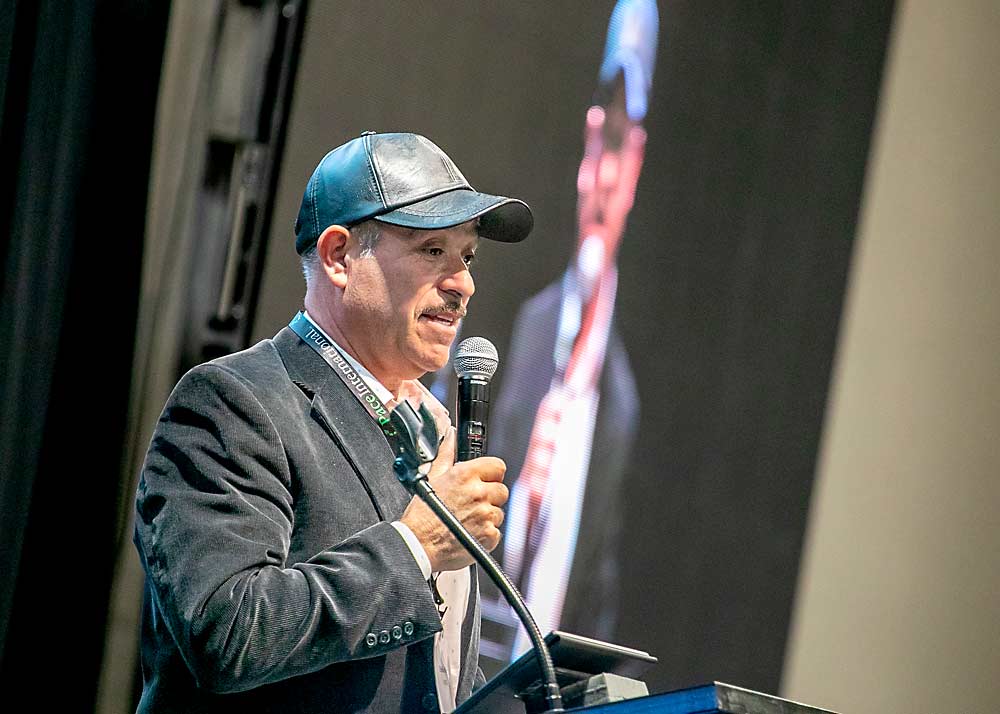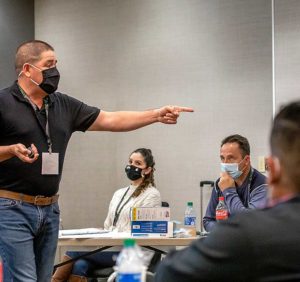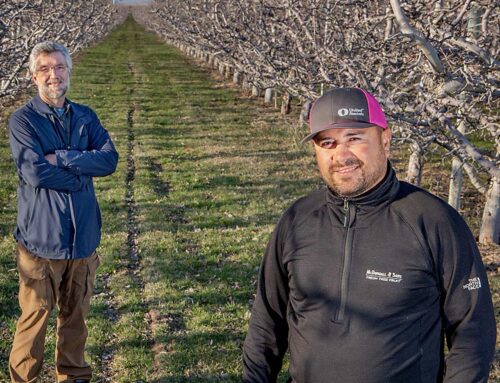
Of all the skills employees need, emotional intelligence should be at the top of the list.
“It should be part of the education we get in school,” Ofelio Borges told attendees at the Spanish-language session at the annual gathering of the Washington State Tree Fruit Association in December.
His talk, slated for just after lunch, started with half the chairs still empty.
But Borges has a gift.
Within minutes of picking up the microphone, he had enticed his audience back to their seats. Some 700 men and women of all ages gave him their full, rapt attention as they listened to Borges speak about emotional intelligence, what it actually means and how we can try to achieve it.
Borges, manager of the Washington State Department of Agriculture’s Technical Services and Education Program (previously known as the Farmworker Education Program), came down from the stage to close the distance between himself and the people he wanted to help.
“We are not taught how to control our emotions,” Borges said, adding that such skills are important at work and at home. It’s one of the major pieces of the popular Agricultural Leadership Program he helped develop in partnership with the tree fruit association, Washington State University and WSDA.
Jorge Gordillo of Zillah, who was listening to the presentation standing in the back of the room, agrees. Gordillo has seen what happens when people don’t control their emotions at work. He admits he’s done it himself.
“People speak on impulse without thinking about the consequences,” he said in Spanish.
Borges offered some steps that he knows are not easy to follow. It all starts with identifying emotions, in oneself and in others. Being able to understand and control one’s own emotions and to recognize the emotions experienced by other people are the goals, he said, as is understanding that emotions are temporary.
What Borges explained was not news to many of those present.
“Words like ‘empathy’ are not common words, but we already knew what that is. We get the meaning,” Gordillo said.
Borges’ approach was relatable, said Antonio Silva of Yakima, who was also listening closely. “He has the same frustrations (as we all do),” he said. But whatever happens on the job, he added in Spanish, “you have to keep working, assimilating.” He appreciated Borges’ message that “we should be more patient.”
Borges never intended to present unique ideas. Instead, he talked about everyday problems and offered practical ways to avoid them or, at least, not let them get out of hand. Using simple examples, he illustrated situations in which people did not control their emotions, and he explained the chain of problems this can trigger.
One example he shared: If you are a supervisor and one of your workers doesn’t show up on time, you can decide how to react.
If you assume the worker doesn’t care about the job, is hungover or just lazy, you may become angrier and angrier before the worker has an opportunity to defend himself. The worker may feel unjustly accused of laziness. He may become defensive and angry, too, Borges said. He may take his anger home at the end of the day and yell at his wife and children. As a result, they may feel short-tempered toward each other. Everyone is frustrated and the worker may look for a better job where he won’t be humiliated by his supervisor.
If instead, you decide to believe he is doing his best to get in to work as soon as he can, the worker will have a chance to explain. Do you want to be angry or empathetic until the worker arrives? You have that choice.
After each example, Borges asked attendees what they could have done differently to get better results. The audience responded to the simplicity of his examples. Everyone could relate.
The allotted time passed quickly. As the moderator signaled that he should wrap it up, taken by surprise and with a grin, Borges ended his presentation with some motivational phrases and his signature optimism: “Be willing to change your perspective; be the arbiter of your own actions; practice tranquility,” he said. “We have the capacity to change things.”
—by Jean Dibble







Leave A Comment